US maker of electric cars vows to invest heavily in charging stations
Updated: 2014-04-23 05:49
By WANG CHAO in Beijing and JACK FREIFELDER in New York (China Daily USA)
|
||||||||
|
|
US-based electric car manufacturer Tesla Motors Inc delivered the first batch of its Model S series cars to customers in China on Tuesday, a move that one New York-based analyst sees as a steppingstone to increased operations in the world's second largest economy.
"China is the world's most important luxury vehicle market, period," said Craig Irwin, an analyst with Wedbush Securities Inc. "Tesla is a completely new transportation paradigm — coming out with amazing, technology-laden cars that don't use gasoline — and there are a lot of Chinese people that want the best technology available. That's what Tesla is seeing with early demand for the Model S in China."
 |
|
A Tesla Model S luxury sedan sits outside of a Tesla Motors Inc service center on Tuesday in New York. Tesla delivered its first eight electric sedans to customers in China this week, and CEO Elon Musk plans to build up the automaker’s infrastructure in the world’s second largest economy. Jack Freifelder/China Daily USA |
Tesla delivered the first eight of its Model S cars to Chinese customers in Beijing on Tuesday as it pledged to invest "hundreds of millions of dollars" into charging facilities and service centers in China.
The first few customers included high-profile individuals such as Yin Xidi, the president of the Lifan football club, and Li Xiang, president of the Beijing-based automobile news outlet Autohome Inc.
Elon Musk, founder and CEO of Tesla, said he hoped to form partnerships with companies such as State Grid Corp of China to plan out the construction of more charging facilities.
"Charging stations can also be run without power utilities," Musk said. "Solar panels can actually work independent of electricity, but our main goal is to make sure the power is sustainable and clean."
Tesla Motors is an American company based in Palo Alto, California, that manufactures and sells electric cars and vehicle components.
The company first made a name for itself in automotive circles with its production of the Tesla Roadster, the first fully electric sports car, but the focus has since shifted to production of the Model S to meet the demand for luxury sedans.
In terms of production in China, Musk said regulatory and other challenges might force the company's hand. It could take more than three to four years to relocate production facilities to China, during which time Musk predicts that the California plant would reach capacity.
"By that time, rather than creating another plant purely dedicated to exports, we would rather build in local markets — whether that's in China, Europe or elsewhere — so we produce more affordable vehicles," he said.
Musk said instead of building a dealership network, he was more concerned about service centers in China.
"Dealerships are the wrong approach," he said. "Tesla does direct sales everywhere in the world. In China, we will probably see more demand than we can fulfill this year."
"Therefore, rather than trying to amplify our sales, we want to focus on service and Tesla super-charging locations, so every owner has a great experience," Musk said.
Earlier this year, Musk said that he would be quite happy if there are 5,000 orders in China in 2014.
Tesla declined to release its order numbers in China.
Tesla only got final approval from the government to import cars in January. Some customers have complained that they paid deposits as early as October 2013 and have had to wait a long time for delivery.
Musk explained that the company held back these cars on purpose.
"We postponed the debut in China to address all the charging and service concerns of these customers," Musk said.
But customers in other cities may still have to wait.
Musk said the service centers would determine when cars would be delivered in cities apart from Beijing and Shanghai.
Tesla owners still need to win a license lottery in Beijing. Moreover, the cars don't qualify for any of the government subsidy programs.
The Palo Alto company previously announced a $121,000 sticker price for its Model S in China. It said import taxes and shipping account for the difference with its US price tag of $81,000.
Wang Xiangning, a housewife in Beijing, said the family already owns a Lexus and the Tesla will be used for her husband's daily commute.
"I can understand the delay," she said. "After all, safety is the biggest concern for all electric vehicles. They have to be cautious."
Andrea James, senior research analyst at investment banking firm Dougherty & Co LLC, said the electric carmaker's pricing decisions in the Chinese market have created a "welcoming environment for Tesla".
"My sense of Tesla's early reception in China is that the brand will be welcomed there," James said. "Tesla's Model S sedan was received well in the US and Europe, so it should be popular among the Chinese."
James said air quality issues in Chinese cities make Tesla's value to the consumer "even more compelling".
"Instead of capitalizing on this value proposition by charging a giant markup on Chinese consumers, Tesla is choosing to sell more zero emissions vehicles by keeping pricing consistent with North America. This is generating good will early on, which appears to be a smart move."
Contact the writers at wangchao@chinadaily.com.cn and jackfreifelder@chinadailyusa.com.
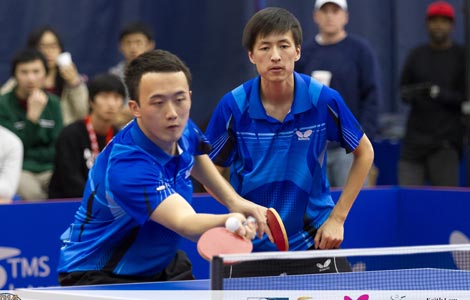
 College ping pong lures Chinese students
College ping pong lures Chinese students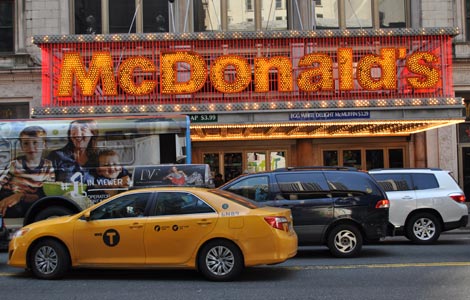
 McDonald's will make over mainland stores
McDonald's will make over mainland stores
 Chinese reporters shop till they drop in LA
Chinese reporters shop till they drop in LA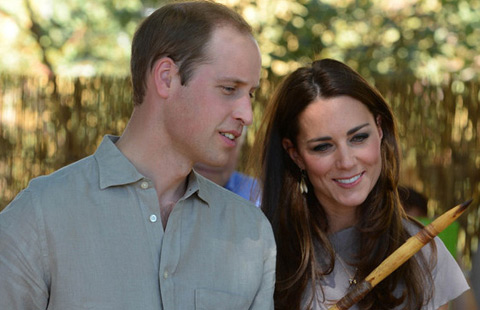
 William and Kate visit Australia's indigenous academy
William and Kate visit Australia's indigenous academy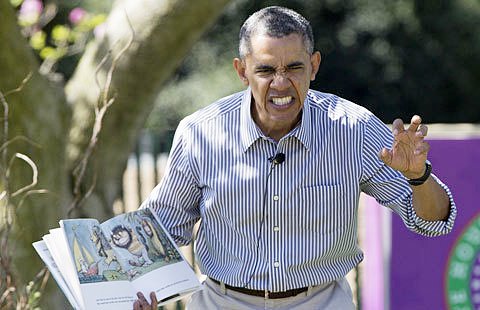
 Obamas host White House Easter Egg Roll
Obamas host White House Easter Egg Roll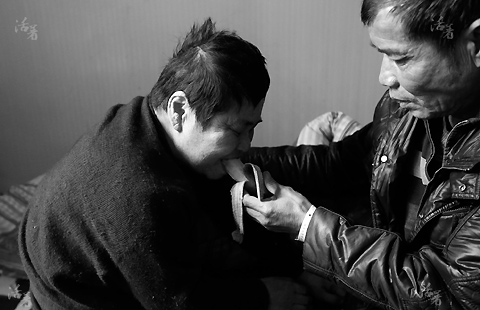
 Photo Story: Dying man seeks caregiver for ailing wife
Photo Story: Dying man seeks caregiver for ailing wife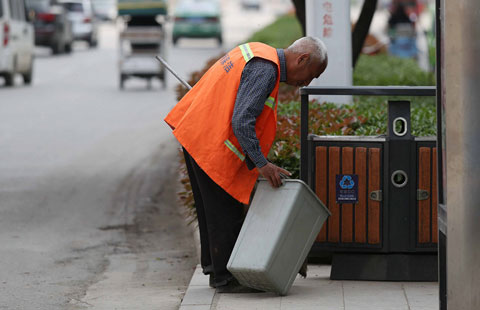
 Wrongly jailed man lands stable job
Wrongly jailed man lands stable job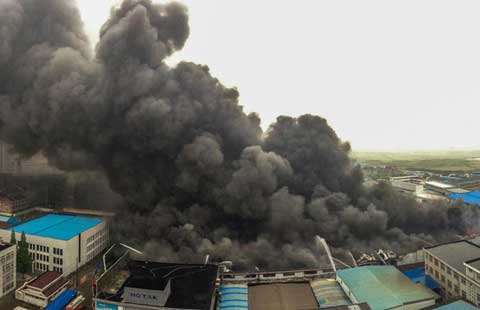
 Fire erupts in E China appliance plant
Fire erupts in E China appliance plant
Most Viewed
Editor's Picks

|

|

|

|

|

|
Today's Top News
Obama appoints Chinese American to commission
Obama's trip not to 'contain' China
College ping pong lures Chinese students
Chinese biz schools to lure CEOs
McDonald's to make over in China
Chinese American appointed to commission
Chinese reporters shop till they drop in LA
Tesla to power up across China
US Weekly

|

|







